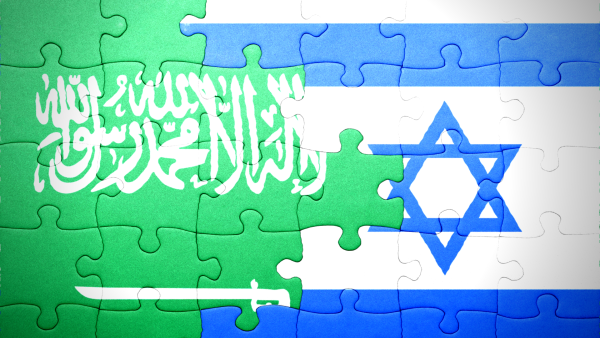The conversation over the possibility of normalizing diplomatic ties between Israel and several Arab states continue to spark a lot of controversies, ever since the UAE and Bahrain broke a decades-old Arab commitment to an arab peace plan presented by Saudi Arabia in 2002 to condition normalization with Israel by its recognition of a Palestinian state on the 1967 borders.
“What I heard from Palestinian leadership in recent days was truly painful to hear. This low level of discourse is not what we expect from officials who seek to gain global support for their cause,” says Saudi Arabia’s Prince Bandar bin Sultan.https://t.co/f215T0uqkX pic.twitter.com/ajZY70r6xE
— Al Arabiya English (@AlArabiya_Eng) October 5, 2020
This time, the debate was ignited following statements made by the Saudi Prince Bandar bin Sultan during an interview with the Saudi-owned Alarabiya TV channel.
The former Director-General of the Saudi Intelligence Agency, who had served as the Saudi ambassador to the US for 22 years between 1983 and 2005, launched an attack at the Palestinian leadership, calling them "failures who like to side with the losing side," expressing his frustration with Palestinian officials' "constant attack at Gulf leaders."
In his interview, bin Sultan provided detailed anecdotes of the political arena in the Middle East during the 1980s and the 1990s, talking about the different alliances in the region and the rifts that broke relations between Arab states in the wake of the Gulf War in 1990.
Following the interview, online people took to social media to comment on the prince's statements, as Saudis and Emiratis saluted "his courage defending his country."
“There is also something that successive Palestinian leaderships historically share in common; they always bet on the losing side, and that comes at a price,” Saudi Arabia’s former ambassador to the US Prince Bandar bin Sultan tells Al Arabiya.https://t.co/FjiBpPizrT pic.twitter.com/H73CTZfPEb
— Al Arabiya English (@AlArabiya_Eng) October 5, 2020
Meanwhile, many social media users wondered if this means a change in the Saudi stance towards the Palestinians, which could suggest a recent decision to pave the way for normalization with Israel without necessarily calling for a Palestinian state.
Such questions over Saudi-Israeli relations have been rising due to conflicting statements made by Saudi and US officials. While Saudi's King Salman had released a statement in which he expressed his rejection of normalization with Israel on the basis of anything but the 2002 Arab Initiative for peace, several other sources suggested that his son, the Crown Prince Mohammad bin Salman "doesn't mind the idea so much," especially that he is a close friend of Donald Trump's envoy for Middle Eastern Peace Jared Kushner, who has been pushing Arab states to establish full ties with Israel.
Bandar bin Sultan's speech marks the beginning of Saudi Arabia joining the path of adherents with Israel pic.twitter.com/9oiB3fF0DS
— Samir Aoun (@SamirAo09581951) October 5, 2020
Saudi former intelligence chief slams Palestinian leadership's criticism of UAE-Israel deal https://t.co/7geX3lCCNX pic.twitter.com/G65fXxGQOw
— Reuters (@Reuters) October 6, 2020
On the 15th of September 2020, foreign ministers of the UAE and Bahrain signed the Abraham Accords with the Israeli Prime Minister Benjamin Netanyahu and the US President Donald Trump. A few days later, press sources have been reporting possible deals with Oman and Sudan, while the US President told journalists that "Saudi will be following in soon" but nothing has yet been made official.







